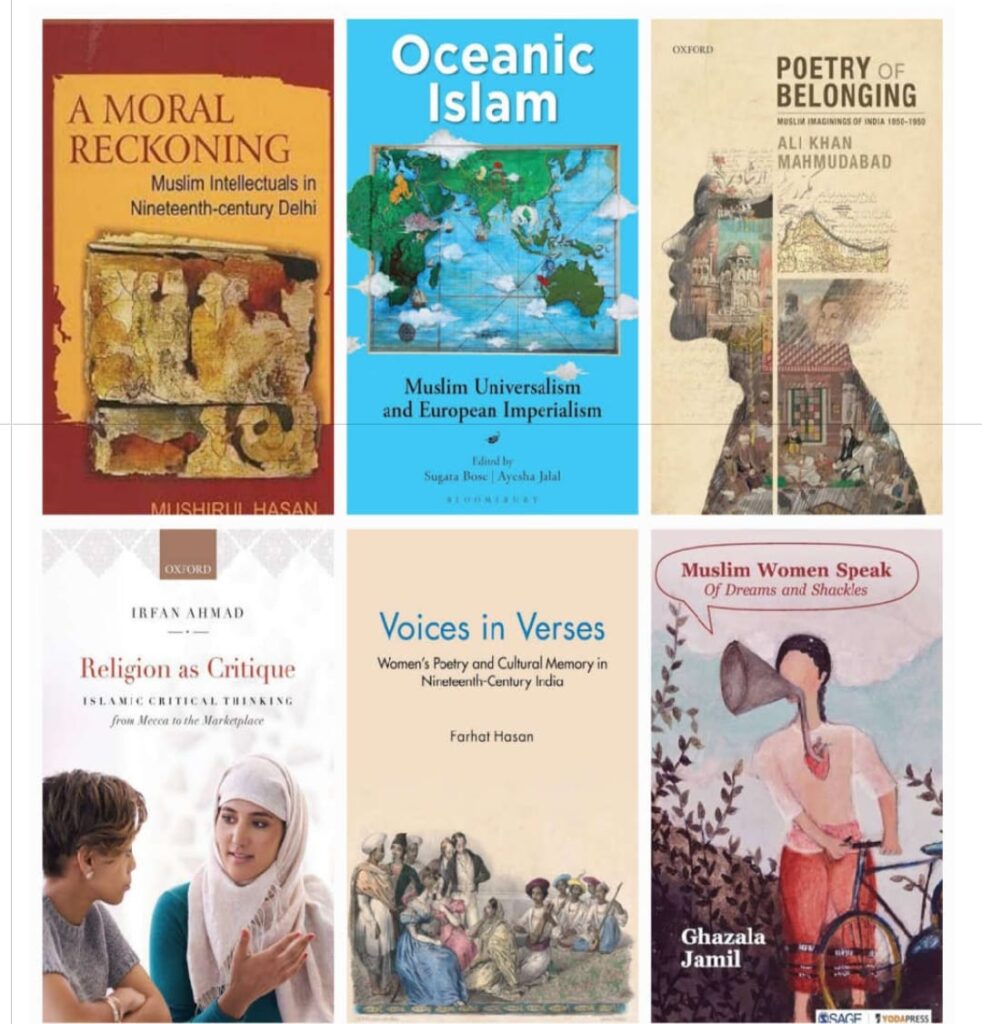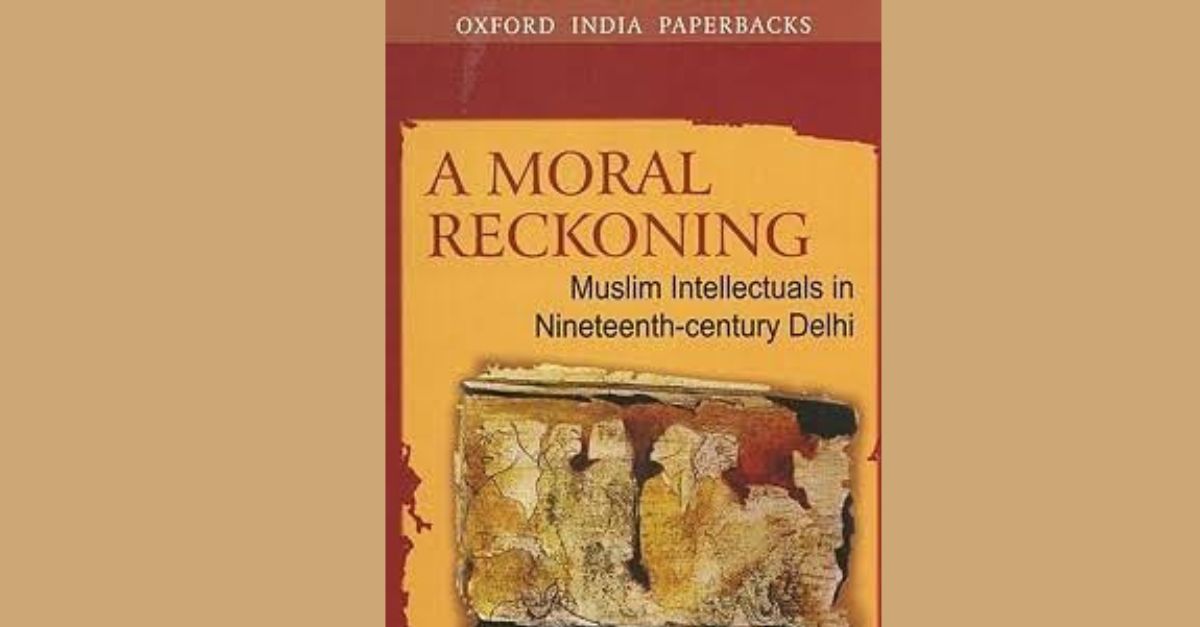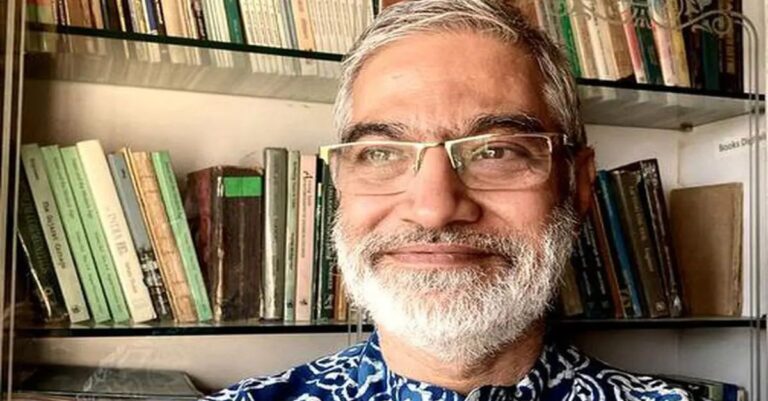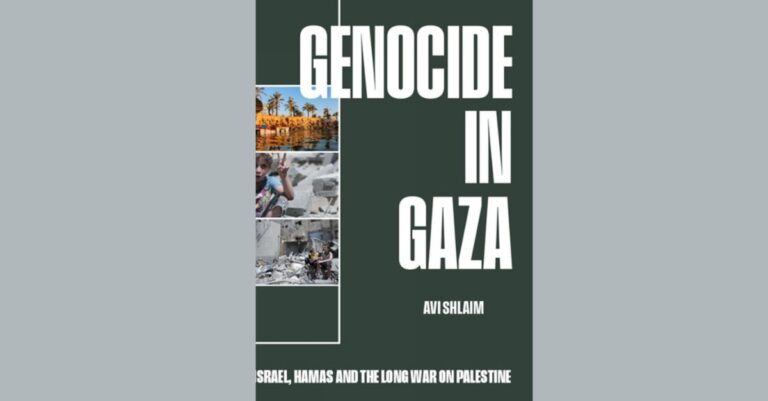On 6th September 2025, Free Voice organised a reading session. The book chosen was A Moral Reckoning: Muslim Intellectuals in Nineteenth century Delhi (2005, OUP) by Mushirul Hasan. The session was proposed by budding sociologist Zeeshan Husain, an admirer of Hasan’s work since his college days. The session aimed to introduce this important work to young readers and encourage them to read it whenever they could.
Husain began by outlining Mushirul Hasan’s distinguished career, which included a PhD from the University of Cambridge, the Vice-Chancellorship of Jamia Millia Islamia, the role of Director-General of the National Archives of India and a Padma Shri award. His major contributions include: biographies of Nehru and Gandhi, documenting the contribution of Muslims in India’s freedom struggle, highlighting Muslims who opposed the partition of India and finally, mapping the intellectual history of India’s Muslims from 1850s to 2000s. Husain shared his personal admiration for Hasan, recalling hearing him speak at Aligarh Muslim University and later following his writings in newspapers like The Hindu and The Telegraph.
Husain contextualised A Moral Reckoning by comparing it with five recent significant publications. A key highlight which captivated the attendees was the introduction of the term ‘Delhi Renaissance’ and its proponent CF Andrews. Husain then lamented that historians have highlighted only Bengal Renaissance but not ‘Delhi Renaissance’ and its icons like Muhammad Zakaullah and Nazir Ahmad. However, he aptly cautioned against over-romanticising the term ‘renaissance’, noting, that its influence on the masses was quite limited. Nevertheless, the role of Zakaullah and Nazir Ahmad in the workings of Delhi College (established in 1825) deserves serious attention.

Zakaullah and Nazir Ahmad were regularly corresponding with Sayyid Ahmad Khan, the educationist and Mirza Ghalib, the poet. Their correspondence became the entry point of Mushirul Hasan to understand cultural changes in the latter half of 19th century Delhi. He elaborated on four major commonalities among these icons: their acceptance of Western knowledge, their adaptation to colonial state machinery, their trust in inter-faith dialogue and their hope in communal harmony. Husain argued for the need to bring these figures to a wider audience, perhaps through series akin to Gulzar’s Mirza Ghalib. He similarly highlighted the obscurity of important works like the essay Periyar on Islam (2004) by G. Aloysius.
The subsequent Question and Answer session was vibrant, with discussions on: comparison of Delhi Renaissance with Bengal Renaissance, importance of the book in countering contemporary Islamophobia and the issue of economic justice for the Muslim masses. Zeeshan Husain won hearts through his humility and candidness.
Free Voice remains committed to its mission of spreading knowledge and compassion through dialogue. We plan to host more such academic sessions online. Please feel free to email us with your suggestions.
This report is made with inputs from Himmat Vinzuda.
Best regards
Abu Siddik
Editor-in-Chief
FreeVoice




